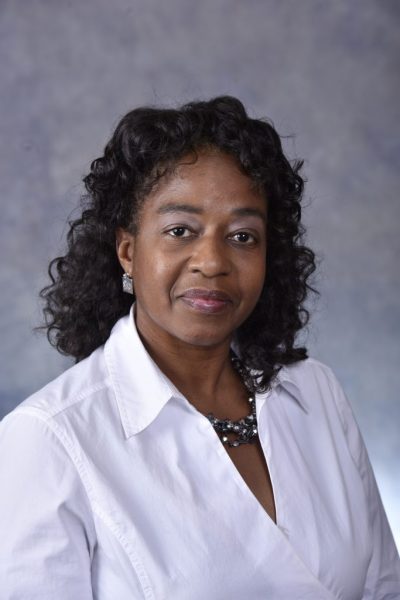Microfinance is fairly commonplace in developing countries. But could it be a resource for female entrepreneurs, especially women of color, living and working in a city like Philadelphia?
Microfinance, which includes a broad range of financial services such as deposits, loans and payments, are targeted towards underprivileged individuals seeking to provide household income and build personal assets. Microfinance products primarily benefit low-income individuals, those that are unemployed or populations that lack access to financial services.
Shauna Dilworth Yeldell, DBA ’19, and chief lending officer at Washington Area Community Investment Fund, Inc., wanted to find out if microfinance institutions (MFIs) could make an impact with female entrepreneurs in the United States the same way research has documented developing countries. This topic was of great interest to Yeldell, given her experience working in traditional banking institutions.

Shauna Yeldell, DBA ’19
Yeldell worked in commercial banking with both multinational institutions as well as regional institutions for 25 years. Throughout her career, she observed challenges that entrepreneurs of color faced when applying for business-purpose loans. As such, most of these entrepreneurs were not approved for funding with traditional banks. Yeldell would often provide these applicants with options for alternative financing, such as Community Development Financial Institutions (CDFI). These alternative or mission-based lenders were intriguing to research to measure the outcomes for entrepreneurs.
Yeldell made the decision to research microfinance institutions during her time in the Fox School’s Executive Doctorate of Business Administration program (Executive DBA) and compiled her findings in her dissertation titled “Impact of Microfinance Institutions for Female Entrepreneurs: Evidence from Philadelphia, PA.”
“If entrepreneurs have support and access to capital, there is a greater chance of establishing and sustaining a strong business community. These are the businesses that tend to hire members of the local community,” says Yeldell. “I specifically chose the city of Philadelphia because of its ranking among large cities with persistent poverty. My thoughts were to research the success factors of MFIs, particularly changes in household incomes.”
Yeldell’s research methodology was both quantitative and qualitative. Quantitative data was collected based on several hypotheses including the comparison of repayment of microloans, changes in household incomes, changes in personal credit scores between male and female entrepreneurs. Qualitative data was collected directly from female entrepreneurs through individual interviews, focus groups and surveys.
“It was important to determine if there were different outcomes based on gender,” says Yeldell. “Without the research, it could be assumed that females would have more difficulty with repayment of loans due to other responsibilities such as being head of household and very few sources of recurring income.”
During the interviews, Yeldell found that the lack of access to resources and capital, sexism and racism were barriers articulated by the participants.
“One of the women that I interviewed mentioned how traditional institutions categorized her loan as ‘high risk’ and would not make business loans available. If she had been able to obtain traditional bank loans, she could have expanded her business sooner,” says Yeldell. “Racism was another barrier she experienced as an employer because as soon as she made her presence known as a person of color and owner of the business, people did not want to work for her. These factors are very real and result in entrepreneurs of color having difficulty obtaining traditional financing when compared to other entrepreneurs.”
Another common issue female entrepreneurs face is the lack of knowledge necessary to establish and scale business entities. Relevant knowledge combined with access to capital are key components of success.
“Many of my conversations with the women I interviewed were centered around the lack of knowledge of available resources to support them,” says Yeldell. “Most of the women talked about the challenges with access to capital and then finding the time to do so while operating a business.”
Yeldell’s research demonstrates that many talented minority female entrepreneurs do not have timely access to the proper resources. She recommends that alternative lenders use targeted advertising campaigns to build awareness of resources, particularly to entrepreneurs of color.
Entrepreneurship is often the pathway chosen by females that have grown frustrated with corporate culture or those that need to replace income due to job loss. This challenging endeavor could be made easier with a supportive entrepreneurial ecosystem, says Yeldell.
